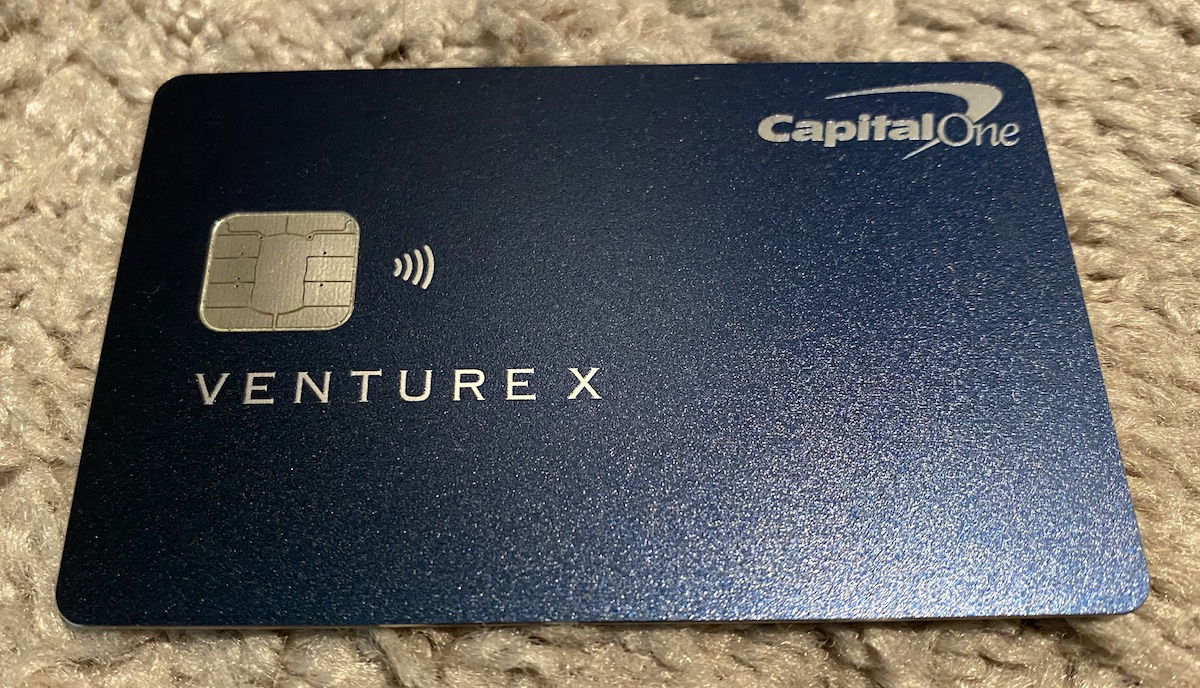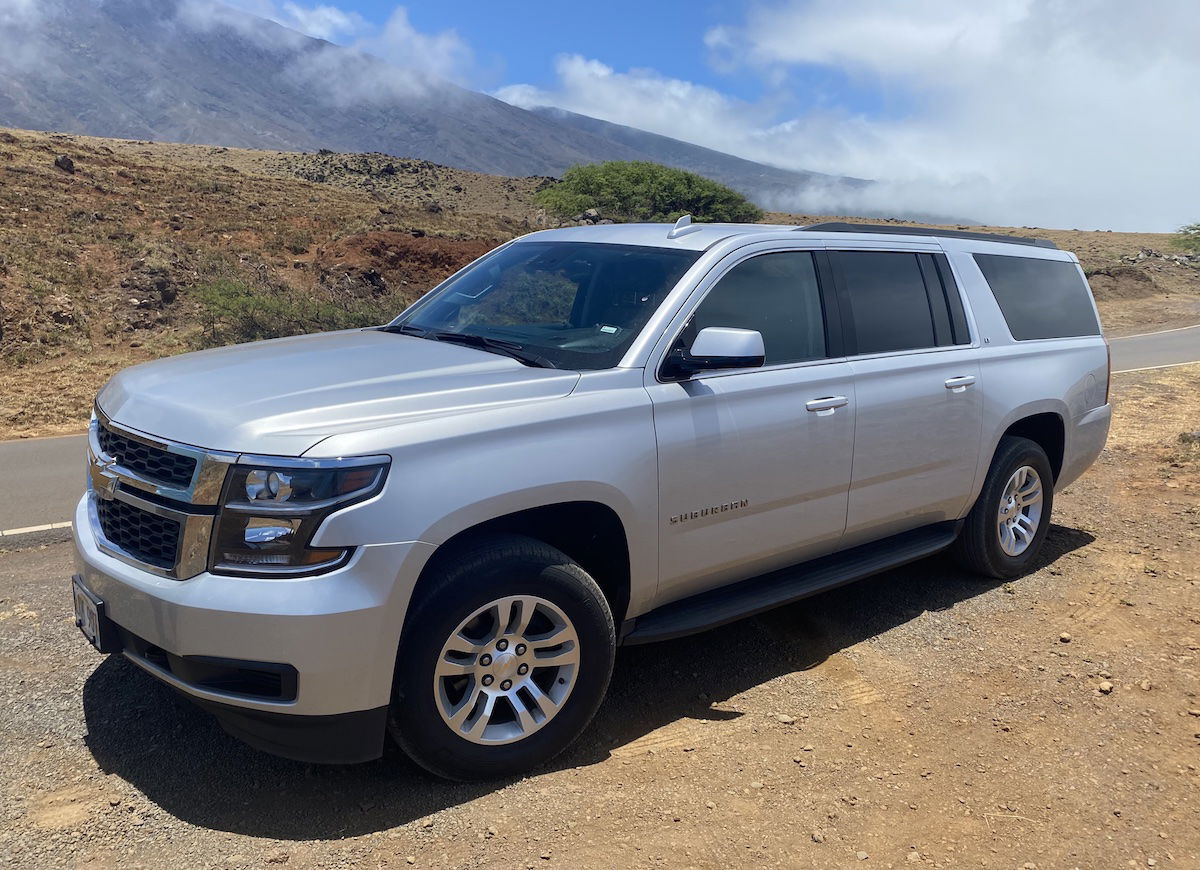Link: Learn more about the Capital One Venture X Rewards Credit Card or Chase Sapphire Reserve® Card
The premium credit card market is more competitive than ever before. The Capital One Venture X Rewards Credit Card (review) is an easy to justify premium credit card, and is in some ways the top competitor to the Chase Sapphire Reserve® Card (review), which has become incredibly popular with consumers.
Since there’s a lot of overlap between these two cards, in this post I’d like to compare the two products, with the hopes of helping people decide which card makes more sense for them. The cards also have quite a few differences, so for some people they may even prove to be great complements.
In this post:
Comparing the Venture X & Sapphire Reserve
Both the Capital One Venture X and Chase Sapphire Reserve are incredibly rewarding cards, so let’s compare them across a variety of factors — welcome bonuses, approval odds, annual fees, the ability to earn & redeem points, annual credits, lounge access, and more. Let’s get right into it…
Welcome bonuses: Venture X vs. Sapphire Reserve
The two cards are currently offering the following welcome bonuses:
- The Capital One Venture X is offering 75,000 Capital One miles after spending $4,000 within three months
- The Chase Sapphire Reserve is offering 125,000 Ultimate Rewards points after spending $6,000 within three months
For context, I value both Capital One miles and Chase Ultimate Rewards points at 1.7 cents each, so both are incredibly valuable points currencies.
Winner: The Sapphire Reserve is the winner here, as the card is currently offering a bonus that’s much bigger.

Approval odds: Venture X vs. Sapphire Reserve
Both cards have rules when it comes to being approved:
- The Capital One Venture X doesn’t have any major approval restrictions; Capital One can be quirky when it comes to approving people, but that doesn’t seem to follow any specific rhyme or reason
- The Chase Sapphire Reserve bonus isn’t available to those who have a Sapphire card; Chase also has the 5/24 rule
Winner: It depends on your exact situation, especially given that Capital One can be strange about approvals sometimes, but I’d say a lot more people are eligible for the Capital One Venture X than the Chase Sapphire Reserve.

Annual fees: Venture X vs. Sapphire Reserve
When it comes to the annual fees of the two credit cards, there is a significant difference, both for the primary cardmember and for authorized users:
- The Capital One Venture X has a $395 annual fee, and you can add up to four authorized users at no extra cost
- The Chase Sapphire Reserve has a $795 annual fee, and adding authorized users costs $195 per person
Winner: The Capital One Venture X wins by a long shot here, as the annual fee is much lower, and you can add authorized users at no extra cost.

Earning points: Venture X vs. Sapphire Reserve
The two cards have different rewards structures, with one card being great for everyday spending, and the other card being great for popular bonus categories:
- The Capital One Venture X earns a minimum of 2x Capital One miles on all purchases; you can also earn bonus miles for travel booked through Capital One Travel, including 10x miles for hotels and rental cars, and 5x miles for flights
- The Chase Sapphire Reserve earns 8x points on all purchases through Chase Travel℠, including The Edit℠ and 4x points on flights and hotels booked direct. Plus, earn 3x points on dining worldwide & 1x points on all other purchases
Winner: I’d say this is a “your mileage may vary” situation, so I don’t think there’s an obvious winner. If over half of your spending is on dining and travel, you’ll come out ahead with the Chase Sapphire Reserve, while if over half of your spending is in other categories, you’ll come out ahead with the Capital One Venture X. This doesn’t factor in the ability to build a portfolio of cards, which I’ll address below.

Redeeming points: Venture X vs. Sapphire Reserve
As I mentioned above, I value both Capital One miles and Chase Ultimate Rewards points at 1.7 cents each, but I wanted to expand a bit on redemption opportunities.
Points earned on the Capital One Venture X can be redeemed in the following ways:
- They can be redeemed for one cent each toward the cost of a travel purchase; what’s cool is that you can book travel however you’d like, and then retroactively reimburse yourself for those purchases with statement credits
- They can be transferred to Capital One airline and hotel partners, with a vast majority of transfers being at a 1:1 ratio
Capital One mileage partners include the below (along with transfer ratios and times).
Capital One Transfer Partner | Transfer Ratio | Transfer Time |
|---|---|---|
1000 : 500 | ~ 24 to 48 hours | |
Aeromexico Club Premier | 1000 : 1000 | Instant |
1000 : 1000 | Instant | |
1000 : 1000 | Instant | |
1000 : 1000 | Instant | |
1000 : 1000 | Instant | |
1000 : 1000 | ~ 3 to 5 days | |
1000 : 1000 | Instant | |
1000 : 1000 | Instant | |
1000 : 1000 | ~ 12 to 24 hours | |
1000 : 750 | ~ 24 to 48 hours | |
1000 : 1000 | Instant | |
1000 : 750 | ||
1000 : 600 | Instant | |
1000 : 1000 | ~ 24 to 48 hours | |
1000 : 1000 | ~ 24 to 48 hours | |
1000 : 1000 | Instant | |
1000 : 1000 | ~ 24 to 48 hours | |
1000 : 1000 | Instant | |
1000 : 1000 | Instant |
Points earned on the Chase Sapphire Reserve can be redeemed in the following ways:
- I’ve seen redemption values as good as 2.0 cents each towards the cost of select air purchases through Chase Travel; this gets you a higher per-point value, but you are restricted to booking through the travel portal
- They can be transferred to Ultimate Rewards airline and hotel partners at a 1:1 ratio
Chase Ultimate Rewards partners include the below (along with transfer ratios and times).
Ultimate Rewards Transfer Partner | Transfer Ratio | Transfer Time |
|---|---|---|
1000 : 1000 | Instant | |
1000 : 1000 | Instant | |
1000 : 1000 | Instant | |
1000 : 1000 | Instant | |
1000 : 1000 | Instant | |
1000 : 1000 | Instant | |
1000 : 1000 | Instant | |
1000 : 1000 | ~ 1 to 7 days | |
1000 : 1000 | Instant | |
1000 : 1000 | Instant | |
1000 : 1000 | Instant | |
1000 : 1000 | Instant | |
1000 : 1000 | ~ 1 to 2 days | |
1000 : 1000 | Instant |
Winner: I’d say the Chase Sapphire Reserve has the slight edge here. I value the two points currencies the same, but if I had to choose, I think I slightly prefer the Chase Ultimate Rewards transfer partners (thanks to World of Hyatt), and the “cash-out” value when redeeming points toward travel is higher (though with the requirement to book through the portal, which is restrictive).

Annual credits & ongoing perks: Venture X vs. Sapphire Reserve
Both cards offer significant annual credits that largely help offset the annual fee:
- The Capital One Venture X offers a $300 annual credit, which can only be applied toward purchases with Capital One Travel, including of flights, hotels, and rental cars; on top of that, the card offers 10,000 bonus anniversary Capital One miles every year, redeemable for at least $100 worth of travel (or they can be transferred to airline partners)
- The Chase Sapphire Reserve offers a $300 annual travel credit, which has incredible flexibility since it can automatically be applied to any travel purchase you charge to the card, with no need to use Chase’s portal
Winner: While the Chase Sapphire Reserve’s $300 credit is more flexible, the Capital One Venture X wins for offering both a $300 credit and 10,000 bonus anniversary miles, which more or less means the card “costs” you almost nothing to hold onto, if you’re maximizing things properly.

Lounge access: Venture X vs. Sapphire Reserve
One of the major reasons people consider picking up a premium credit card is for lounge access, and this is an area where both cards are phenomenal:
- The Capital One Venture X offers a Priority Pass™ Select membership, access to Capital One Lounges, and access to Capital One Landings; current Capital One Lounge locations include Dallas (DFW), Denver (DEN), and Washington (IAD), while Capital One Landing locations include Washington (DCA)
- The Chase Sapphire Reserve offers a Priority Pass™ Select membership, and access to Chase Sapphire Lounges; current Chase Sapphire Lounge locations include Boston (BOS), Hong Kong (HKG), New York (JFK), New York (LGA), Phoenix (PHX), San Diego (SAN), and Washington (IAD)
Admittedly a major consideration here is which airports you frequent, and where you’re based, especially with the specific credit card lounge networks the two issuers offer.
Winner: The Capital One Venture X wins here. Not only does the card have a lower annual fee, even though authorized users don’t receive complimentary lounge access, but the cost to add is also less than adding authorized users on the Sapphire Reserve. Furthermore, the card also offers access to Capital One Lounges and Capital One Landings. However, the Chase Sapphire Lounge network is pretty awesome as well.

Rental car perks: Venture X vs. Sapphire Reserve
Both cards are Visa Infinite products, which means they come with certain rental car perks, though there’s still a difference:
- The Capital One Venture X offers Hertz President’s Circle status, plus standard Visa Infinite rental car perks, which includes National Emerald Club Executive status, and discounts with Avis
- The Chase Sapphire Reserve offers standard Visa Infinite rental car perks, which includes National Emerald Club Executive status, and discounts with Avis
Winner: The Capital One Venture X wins, since it not only offers the standard Visa Infinite perks, but also top-tier status with Hertz.

Building a card portfolio: Venture X vs. Sapphire Reserve
It’s important to call out one competitive advantage of the Chase Sapphire Reserve, which is the ability to create an incredible portfolio of credit cards that helps maximize your rewards. Capital One’s mileage earning cards are all great for everyday spending, but opportunities to take advantage of bonus categories are a bit more limited than with Chase.
You can pool the points you earn on the Chase Sapphire Reserve with some other awesome Chase cards, most of which don’t have an annual fee:
- The Chase Freedom Flex℠ (review) has no annual fee and offers 5x points in rotating quarterly categories, for up to $1,500 of spending per quarter, plus 3x points on dining and drugstores
- The Chase Freedom Unlimited® (review) has no annual fee and offers a minimum of 1.5x points on all purchases, plus 3x points on dining and drugstores
- The Ink Business Cash® Credit Card (review) has no annual fee and offers 5x points on the first $25,000 of combined purchases per cardmember year on office supply stores, internet, cable TV, mobile phones, and landlines, and 2x points on the first $25,000 of combined purchases per cardmember year on restaurants and gas stations
- The Ink Business Unlimited® Credit Card (review) has no annual fee and offers a flat 1.5x points on all business purchases
- The Ink Business Preferred® Credit Card (review) has a $95 annual fee and offers 3x points on the first $150,000 spent each cardmember year on travel, shipping purchases, internet, cable, phone services, and advertising purchases made with social media sites and search engines
As you can see, these cards are all great complements that can greatly increase the pace at which you earn Ultimate Rewards points. Of course, this assumes that you’re willing to get multiple cards, which some people don’t want to do.
In fairness, Capital One isn’t without pairing options either. The Capital One Savor Cash Rewards Credit Card (review) offers 3% cash back on dining, grocery stores (excluding superstores like Walmart and Target), entertainment, and select streaming services, and the card has no annual fee and no foreign transaction fees. If you have the card in conjunction with the Capital One Venture X, then rewards can be converted into Capital One miles at the rate of one cent per mile.
Winner: The Chase Sapphire Reserve wins, as you can create a much more robust portfolio of credit cards to maximize your rewards with spending.

Which premium credit card is better?
Hopefully, the above is a fair rundown comparing various aspects of the cards. Based on the categories I compared (which are standard categories I use when comparing cards), the Capital One Venture X wins over the Chase Sapphire Reserve. Of course, there’s never a cut-and-dry answer as to which card is better, so let me try to provide some more specific advice.
Who should consider the Capital One Venture X, who should consider the Chase Sapphire Reserve, and is there a happy medium approach to take?
Who should get the Capital One Venture X?
I think the Capital One Venture X might just be the easiest to justify premium credit card ever. Not even factoring in the excellent welcome bonus:
- The card has a $395 annual fee, but offers a $300 annual travel credit and 10,000 anniversary bonus miles, so in the long run those two perks should more or less cover the annual fee
- You’re then getting a card that offers a Priority Pass™ Select membership, Capital One Lounge access, and Capital One Landing access
- Then you also have a card that has an unbeatable return on everyday spending, plus offers valuable purchase protection, ranging from rental car coverage, to cell phone protection, to travel coverage
- There’s not a better card for families, as you can add four family members to your card at no extra cost, and they get many of the same perks
I don’t think there’s a premium credit card out there that’s easier to justify.

Who should get the Chase Sapphire Reserve?
The Chase Sapphire Reserve continues to be a well-rounded card with an excellent welcome bonus. For those who spend a lot on dining and travel, the earning multipliers for those purchases is great.
Furthermore, if you like booking travel through a portal, redeeming points toward those purchases is also a good opportunity. Furthermore, if you’re a Hyatt loyalist, you can’t beat the ability to convert Chase Ultimate Rewards points into World of Hyatt points, as that’s not something that’s possible with Capital One miles.
I think the main reason to consider the Chase Sapphire Reserve is if you want to build a portfolio of Chase credit cards. That’s where Chase really shines.

A solid hybrid strategy I’d recommend
If you can’t decide between the Capital One Venture X and Chase Sapphire Reserve, I think there’s a hybrid strategy that is worth considering. I think there’s something to be said for getting the $95 annual fee Chase Sapphire Preferred® Card (review) in conjunction with the Capital One Venture X, as it’s a nice compromise in terms of annual fees.
Personally, I think the combination of the Venture X and the Sapphire Preferred is hard to beat:
- You’ll pay a total of $490 in annual fees between the two cards, which is lower than the annual fee of just the Sapphire Reserve
- You’ll receive a $300 annual travel credit, plus 10,000 bonus Capital One miles on your anniversary every year, which should offset all of the Venture X annual fee
- This gives you the best of both worlds — a Priority Pass™ Select membership, Capital One Lounge access, and Capital One Landing access, great travel protection, 3x points on dining and 2x points on everyday spending, access to both card ecosystems, rental car status, cell phone protection, and so much more
Bottom line
The Chase Sapphire Reserve has been the most popular premium travel credit card for a long time, though the Capital One Venture X has become quite the competitor. While there’s never a one-size-fits-all answer as to which card is best, I do think the Venture X is very competitive with the Sapphire Reserve, and will be a better option for many.
The Venture X annual fee is much easier to justify, given that it’s lower, and there are more annual credits and miles that help offset the fee.
I think there’s an argument to be made here for the combination of the Venture X and Sapphire Preferred, as that really gives you the best of both worlds.
Where do OMAAT readers stand — do you prefer the Venture X or Sapphire Reserve? Or do you think it can make sense to have both?
Upon enrollment, accessible through the Capital One website or mobile app, eligible cardholders will remain at that status level through the duration of the offer. Please note, enrolling through the normal Hertz Gold Plus Rewards enrollment process (e.g. at Hertz.com) will not automatically detect a cardholder as being eligible for the program and cardholders will not be automatically upgraded to the applicable status tier. Additional terms apply.
For Capital One products listed on this page, some of the above benefits are provided by Visa® or Mastercard® and may vary by product. See the respective Guide to Benefits for details, as terms and exclusions apply.





Lucky, can you write about Capital One's approval requirements? I have an excellent credit rating (800+) and low utilization but I've been rejected by Capital One twice. Once earlier this year for the Venture, and again this week for the Venture X (a preapproval rejection). Both times, the reason provided was that I have too many credit cards. Which seems baffling to me, because I know this rarely counts against applicants! I wonder if my...
Lucky, can you write about Capital One's approval requirements? I have an excellent credit rating (800+) and low utilization but I've been rejected by Capital One twice. Once earlier this year for the Venture, and again this week for the Venture X (a preapproval rejection). Both times, the reason provided was that I have too many credit cards. Which seems baffling to me, because I know this rarely counts against applicants! I wonder if my lack of home loan history is counting against me here. Anyway, now I'm wondering if I should close a few accounts that I don't use often. Do you have advice?
I had the exact same experience. My credit score is between 805 and 818 across the three bureaus. I have a lot of upcoming travel and ideally wanted the Venture X as my family also travels, but I was rejected for the same reason as yours. I applied and received instant approval for the Chase Sapphire Reserve.
@Ben, I'm surprised you didn't expand on the travel protection differences between the cards. CSR/CSP have significantly higher trip cancellation/interruption amounts and cover more scenarios. They also cover delayed bags (benefitted from this multiple times), which the Venture X doesn't seem to have. Also, most of the CSR/CSP travel protections now cover more family members than just spouse + kids and also don't have an age restriction.
This is a good point. I couldn’t decide recently which card to use X or CSP booking a family trip to Tokyo. Ended up using CSP for that reason (and because I can transfer points earned to Hyatt)
Trip cancelation and interruptions is worthless. It's so difficult to successfully get a claim approved. You are required to have a RT ticket purchased and not 2 OW. Then every night accommodation must also be on the same card. There can be no other card used even on one night in between the flight. When I trird to get a short trip reimbursed due to a death in the family the credit card agent gave...
Trip cancelation and interruptions is worthless. It's so difficult to successfully get a claim approved. You are required to have a RT ticket purchased and not 2 OW. Then every night accommodation must also be on the same card. There can be no other card used even on one night in between the flight. When I trird to get a short trip reimbursed due to a death in the family the credit card agent gave me a long list of must do that clearly spells out you don't have a chance unless you did your entire trip with just 1 card.
@Bob, if this was for the CSR/CSP, the agent was wrong. According to the benefits guide, you can charge all or a portion of the cost to your card. The cancellation/interruption coverage is limited to what you charge (plus the rewards) to the card, so if you put $5k of a $10k trip on the card, you'll only be covered for $5k.
Was the family member a close relative? While a lot of people qualify...
@Bob, if this was for the CSR/CSP, the agent was wrong. According to the benefits guide, you can charge all or a portion of the cost to your card. The cancellation/interruption coverage is limited to what you charge (plus the rewards) to the card, so if you put $5k of a $10k trip on the card, you'll only be covered for $5k.
Was the family member a close relative? While a lot of people qualify (parents/grand, siblings, kids/grand, spouse, etc.), more distant relatives don't.
Loss of the instacart credits, is why its behind the x venture, now currently
CSR has been stale for years. I downgraded to CSP a while back without regrets but if they can enhance the card and make it competitive again I’m not opposed to going back.
P2 & I have had separate Venture X accounts and easily use the annual credits on both cards. Adding AUs with their own PP membership at no additional cost is another amazing benefit of the Venture X. The 10k bonus points each year and GE credit every 4 or 5 years makes this card a keeper.
I've had the Reserve since when it was first introduced and have procrastinated canceling the card for the...
P2 & I have had separate Venture X accounts and easily use the annual credits on both cards. Adding AUs with their own PP membership at no additional cost is another amazing benefit of the Venture X. The 10k bonus points each year and GE credit every 4 or 5 years makes this card a keeper.
I've had the Reserve since when it was first introduced and have procrastinated canceling the card for the last 2 years. PP restaurant benefit was what justified the increase in the AF from 500 to nearly 600 for me.
Capital One card shopping offers (not Capital One Shopping) have switched from percent cash back to miles. Multiples are similar to Rakuten and superior to Chase. To me, this feature gives Capital One a leg up.
PS - For many hobbyists, the draw to the CSR is Hyatt being a transfer partner. But, Hyatt has dipped its toe into dynamic pricing and an extension of that would not bode well for the CSR. Add to that, given the changed competitive landscape, Chase needs to enhance the CSR from its current state. The refresh on the CSR (Project Emerald) is supposed to be released around 2025Q2. We shall see.
Thanks for turning me on to this. Capital One Offers looks promising.
Capital One has not paid out ever the 5 times I used them
FYI Capitol One Venture X is cutting Plaza Premium in March, but says you can still access most of them with PP (sans shower and with 2 hour limit).